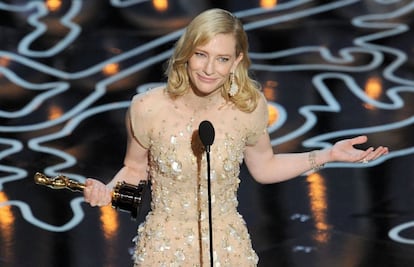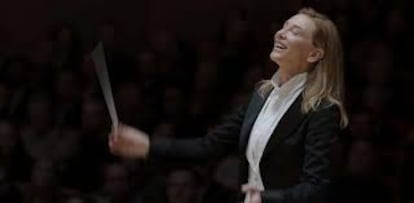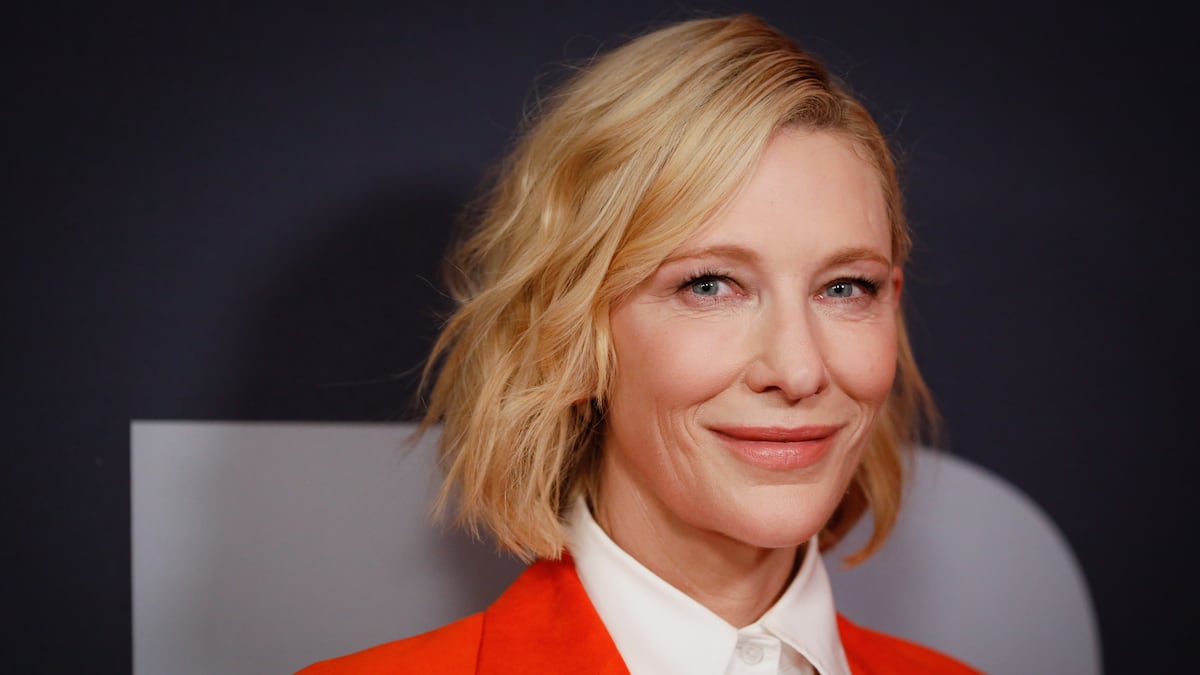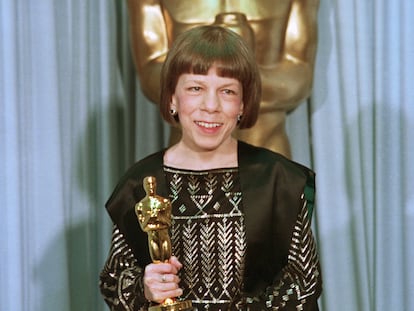Cate Blanchett: ‘I’m an experience junkie’
The actress plays a brilliant and controversial conductor in Todd Field’s ‘Tár,’ a performance that might earn her a third Oscar at the 95th Academy Awards

She met the main requirement: looking American. Thus, she was perfect for the role. And she needed the money. Never mind that she had never acted before. After all, she wouldn’t even have to talk – all that she needed to do was dance and party among many other extras. Just that, and the girl would be able to afford another week in a Cairo hostel. So she accepted, like any young and carefree person would, without giving it a second thought. In hindsight, however, that decision proved to be a turning point: on that day in 1990, Kaboria, Egyptian director Khairy Beshara’s film about boxing, unexpectedly launched the career of one of the biggest stars of contemporary cinema.
In her first movie, Cate Blanchett can barely be seen in a handful of sequences. In her latest film, on the other hand, she is present in practically every frame. This is only one sign of how much has changed in the three decades that have passed between Kaboria and Todd Field’s Tár, but there are many more. Blanchett went from anonymous to ubiquitous; from backpacks and falafel to worldwide fame and millions of dollars. But the adult Hollywood star, deep down, continues to seek the risk and the unknown that her twenty-something self embraced. “I’m an experience junkie,” she claimed in September at the Venice Film Festival, where Tár premiered.
Perhaps this need to try new things has something to do with her passion for making to-do lists and checking off items, an exercise which IMDb claims she loves. Or maybe constant movement is inevitable for someone who seems to have it all: a talent recognized by global unanimity; great roles both in film and theater; being the face of Armani and a UN ambassador in defense of refugees; an evidently happy family, with a long romance, four children and a farm in the middle of the English countryside; filmmakers fighting over her and many, many awards – with a new one presumably coming soon, as everything suggests that Tár will make the Australian a three-time Oscar winner, a club that so far only includes Frances McDormand, Meryl Streep and Ingrid Bergman (although the record belongs to Katharine Hepburn, with four).
Embodying the latter was precisely what earned Blanchett her first statuette (The Aviator, 2005). The second came with Blue Jasmine in 2014. However, Tár marks a new high point in her career, at least judging by the amount of praise she has received. Lydia Tár, her character, is an extraordinary conductor, as ruthless with herself as she is with others. Symphonies, severity, genius, pressure, abuse and even cancel culture make up a very complex score, intended to make the viewer uncomfortable. “The film talks about personal, creative identity, about power structures, it offers several textures in many aspects. It was daunting and overwhelming. But it ended up becoming a joy and a refuge,” she says.

There is a reason, after all, why director Todd Field claims to have written the script with her in mind, that the film “is her” and that, had she rejected it, filming would have stopped. “We wouldn’t be here without him,” Blanchett replies, and adds: “Todd deciding to make a movie is a special event [his previous one, Little Children, is from 2006]. He is very picky and a perfectionist, in the best sense. He doesn’t want to do something fake, and he’s an exquisite writer. It was one of the rarest and most satisfying experiences I’ve ever had with a director.”
That is no small thing, considering that Blanchett has worked with Alejandro González Iñárritu, Todd Haynes, Woody Allen, Martin Scorsese, David Fincher, Sally Potter and Guillermo del Toro, among others. Anyone who works with her ends up taken with her commitment and professional ethics; for instance, for Tár she learned German, to play the piano and to conduct an orchestra – all in her spare time, particularly at night and during weekends. “It affected my sleep,” she said. “My brain went in and out of her. I’m quite practical, but I ended up obsessed with the character.” She has even stated that she considered this to be the last role of her career. Incidentally, thanks to this film she was able to tick another item off her to-do lists: for years, according to IMDb, she had the peculiar fantasy of acting in Berlin and in the local language.
Blanchett claims that she has never taken the time to plan her career. After Elizabeth (her first Oscar nomination, in 1999), she says that everyone started offering her corseted roles: “Basically, it was always the same character but in different periods. So I went back to the theater, because I didn’t want that,” she recalls. Her work in film continued, but she followed her own criteria: “Lasse Hallström made a film [The Shipping News] and I wanted to work with him. They offered me a role but I wanted another, smaller one. I died on page nine. And I remember a director telling me: ‘You need to stop taking small roles.’ I realized that there was kind of a path that you’re supposed to take as an actor towards a destination, and I had never thought about it. I still don’t. I am much more interested in the process, that’s what drives me to get up in the morning.”

She also continues to fight her battles: a feminist, in defense of refugees and concerned about the future of cinema, between the empty theaters, the monotony of content and the oligopoly that she sees after the rise of audiovisual platforms in film. Two decades ago, a profile in The New York Times defined her as a workaholic; meanwhile, in another article published recently by the same newspaper, the actress spoke of her desire to slow down. She talked about her family, her pigs and her sheep, about learning how to make cheese or perhaps becoming a beekeeper.
Back in Venice, she reflected: “From 2003 until now I have not changed deeply. I was obsessed with Charles Darwin’s famous daily walk on the sand. So I went to see the real place. I pictured miles and miles, and it turns out that it is just a few hundred meters. But from doing that walk so much, he went around the world. I tend to go to the bottom of things, but I want to go even further. And maybe move less.” A new box to tick off on her to-do list.
Sign up for our weekly newsletter to get more English-language news coverage from EL PAÍS USA Edition










































